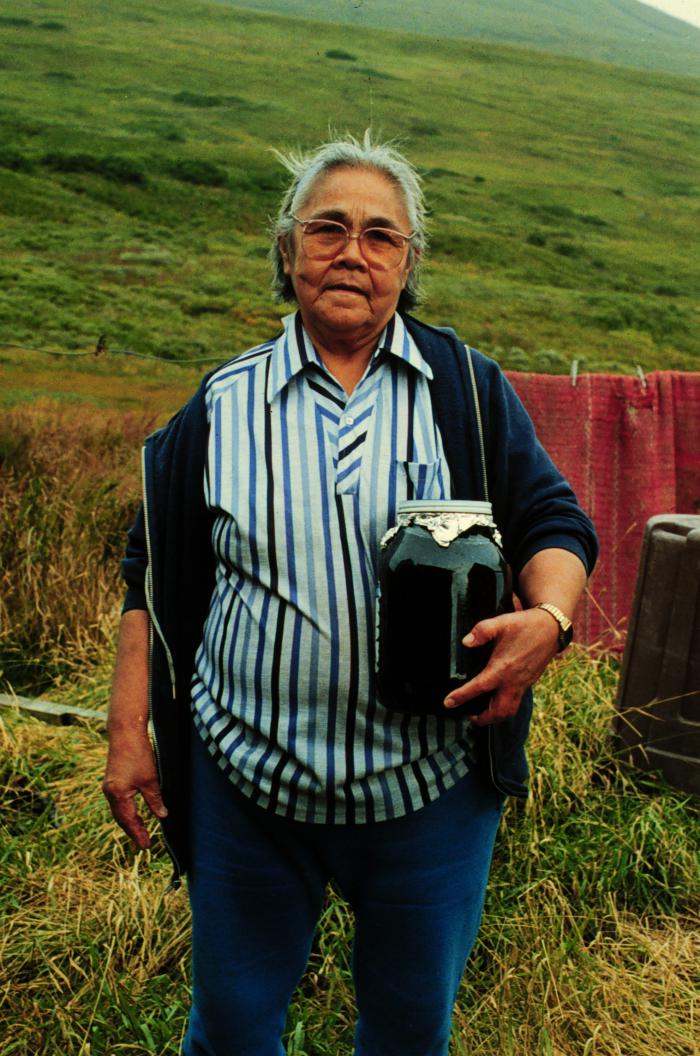Fermented oil, berry pulp & vegetables — Tugluq

There is no one English word that describes tugluq, a flavorful, traditional, Alutiiq dish. Like akutaq or ciitaq, tugluq was a mixture of ingredients tailored to the maker’s tastes and the availability of foods. The base was uququq–fermented seal oil. To this, chefs added berries and greens to form a tasty, aromatic, uncooked meal. Although tugluq is not currently served in Alutiiq homes, Elders remember eating it as late as the 1950s.
A key feature of tugluq was its longevity! This dish was the Alutiiq version of the never-ending pot, a perpetual plant food stew that was never fully eaten and could be replenished for months. In Alutiiq communities, a barrel of tugluq might last all winter, as people added more fermented oil, and whatever fresh or stored plants were available. And as the mixture aged, and continued to ferment, it becomes more flavorful. Both the fermentation and the oil in the dish acted as preservatives.
Making tugluq was a way for Alutiiq people to avoid waste, as leftovers could be added to the mix. Thrift, especially with food, is an essential Alutiiq value. It demonstrates respect for the natural world and ensures a future supply of plants and animals. Tugluq makes good use of the foods you have. Moreover, tugluq supports another Alutiiq value, hospitality. The pot is always available when guests arrive.
Many cultures have a perpetual stew tradition. The hunter’s pot, with meat and tubers, was part of medieval European cuisine. Caribbean cultures make pepperpot. Vietnamese pho and Japanese ramen are often made with stock from a perpetual pot of bone broth. And a legend from India tells of a woman with five husbands who fed her large family from a never-ending pot.
